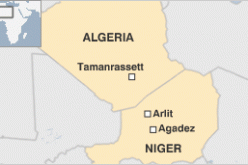By Fred Muvunyi (AFP, Dpa, Reuters)
The World Health Organization (WHO) has warned that the Zika virus, responsible for a surge in birth defects in South America, could rapidly spread to Africa. A global response unit has been set up. The WHO has declared a global emergency over the explosive spread of the Zika virus which has been linked to a rapid increase in birth defects, particularly in South America. The WHO described it as an “extraordinary event” that poses a public health threat to other parts of the world.
However, the UN agency did not impose travel restriction as one of the preventive measures.
The WHO meeting of independent experts was called in response to the spike in babies born in Brazil with a neurodevelopmental disorder known as microcephaly since the virus was first found there in May last year.
Officials in French Polynesia also documented a connection between Zika and neurological complications when the virus was spreading there two years ago, at the same time as breakbone fever.
The Uganda connection
The Zika virus is transmitted by mosquitoes and has appeared in more than 23 countries in the Americas and Europe. A Ugandan virologist, Julius Lutwama, says the disease was ignored after its presence was detected in Uganda about 70 years ago. “It has not been considered as a killer disease,” Lutwama said in an interview with DW.
Aedes is a group of mosquitoes originally found in tropical and subtropical zones. More than a third of the world’s population lives in areas at risk of dengue infection, in a band stretching through Africa, India, Southeast Asia and Latin America.
The first human cases of Zika appeared in the 1970s in Uganda, Tanzania, Egypt, Central African Republic, Sierra Leone, Gabon and Senegal and then in some Asian countries including India, Malaysia, the Philippines, Thailand, Vietnam and Indonesia.
In May 2015, the Zika epidemic was detected in the northwest of Brazil in and it quickly spread to other regions of the country. Brazil has declared the highest number of Zika cases ever recorded – between 440,000 and 1,300,000 suspected cases.
Call for vigilance
Ruchika Kohli, a clinical pathologist at Pathologists Lancet Kenya, said there may not be a rapid spread of the virus in Africa in the short term, but he urged governments to remain aware of the possibility.
“With international travel and international trade, the reality of Zika spreading to the rest of the world, including Africa, is a reality.” Kohli said.
The virus has also been reported in the West African nation of Cape Verde, sparking fears of further outbreaks on the continent, which is already battling other mosquito-borne diseases like malaria.
WHO awake after Ebola slowness
The WHO was criticized for reacting too slowly to the Ebola epidemic in West Africa which killed more than 10,000 people. It has promised to do better in future global health crises.
However, the UN agency has neither vaccine nor medication for treating Zika. There are fears that this virus could become worse than Ebola despite some health experts downplaying the comparison.
“For the moment, I don’t see it becoming worse than Ebola in severity. It may cause some malformation in new born children but Ebola is very serious,” Lutwama said.
Zika is also suspected of having links to a rare condition known as Guillain-Barre, which can cause paralysis and death in extreme cases in adults and children with compromised immune systems.
Symptoms
The Institut Pasteur estimates that about 80 percent of infected people do not develop any symptoms. For the remaining 20 percent, the symptoms caused by the Zika virus are flu-like and include tiredness, fever, headaches, and muscular and joint pain in the limbs.
Different types of skin rash also feature among the symptoms. Some patients also experience conjunctivitis, pain behind the eyes, digestive problems or even swelling of the hands or feet. In most cases, the symptoms are mild and do not require hospital treatment.










